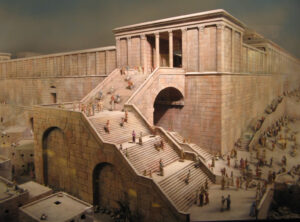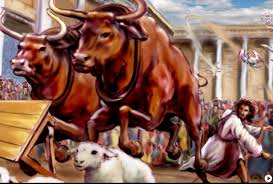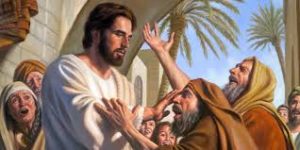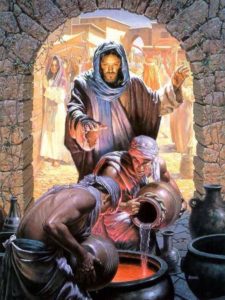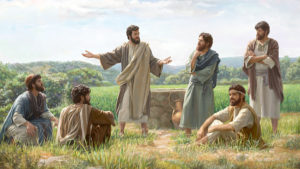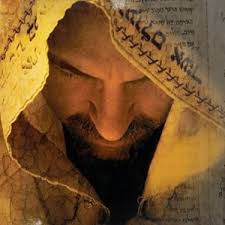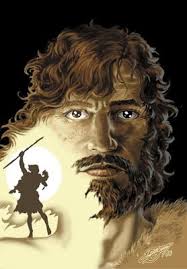Cd – Jesus’ Acceptance in Galilee John 4: 43-45
Jesus’ Acceptance in Galilee
John 4: 43-45
After the two days [in Samaria] He left for Galilee. This was Christ’s first major preaching tour. (Now Yeshua Himself had pointed out that a prophet has no honor in his own country). When He arrived in Galilee, the Galileans also welcomed Him.
The Samaritans believed in Jesus, not because of someone else’s story, but because they themselves had heard Him speak in a way that they had never heard before and because of His words many more became believers (4:41). The Galileans believed in Him, not because someone had told them about Him, but because they had seen all that He had done in Jerusalem at the Passover Festival, for they also had been there. Neither the Samaritans, nor the Galileans could refute the words or the deeds of the Messiah.372
The ministry of Jesus in Judea followed the Passover Festival in April of 26 AD and lasted probably until about the following December. This would be consistent with the expression Yeshua used when speaking to His talmidim at Jacob’s well: Don’t you have a saying, “It’s still four months until harvest?” I tell you, open your eyes and look at the fields! They are ripe for harvest (John 4:35). Since the harvest in those regions was from April to May. It seems that the apostles returned to their old occupations for about four months, and the great Galilean ministry, beginning sometime in the autumn of 27 AD, lasted about a year and a half or until the spring of 29 AD.
Prophecy pointed to Galilee as the place of dawn for a new era of hope. The people living in darkness would see a great light; on those living in the land of the shadow of death a light would dawn(see my commentary on Isaiah, to see link click Cj – He Will Honor Galilee of the Gentiles). Isaiah spoke of that prophecy eight centuries before the coming of Christ, while the Israelites were still encumbered by the yoke of Assyria.
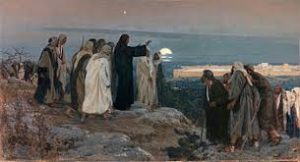
It was fitting that the focus of Jesus’ ministry should find its greatest expression in Galilee. It was the most beautiful, productive and most populated area of Palestine. The bright sunny Sea of Galilee with its sturdy fishermen, surrounded by a beautiful country, was a fitting place (if there could be any) to serve as a setting for His Good News. Galilee of the Gentiles was cradle of the universal gospel. The miracle-working Rabbi liked to mingle in the crowd. He loved mankind and here He found a dense population made up of heterogeneous elements of all types. The Messiah came on the horizon of His chosen people (First Peter 2:9), as a brilliant sun of yearning love. As the master Teacher, His great wisdom illuminated Galilee as a great light in the midst of their darkness.373



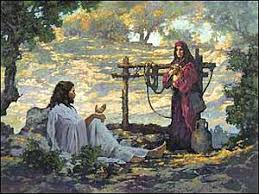
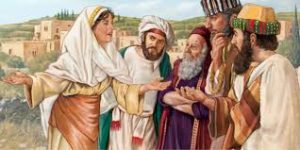
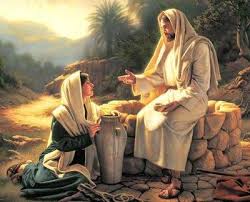 The Samaritan woman makes a vivid contrast to Nicodemus. They were virtual opposites. He was a Jew; she was a Samaritan. He was a man; she was a woman. He was a religious leader; she was an adulteress. He was learned; she was ignorant. He was a member of the highest class; she of the lowest – lower even than an outcast of Isra’el, for she was a Samaritan outcast. He was wealthy; she was poor. He recognized Jesus as a teacher from God; she didn’t have any idea who He was. Nicodemus sought out the Messiah; but here the Savior sought her out. He came to Yeshua by night; however Christ spoke to her about noon. The two of them could hardly have been more different. But, it was
The Samaritan woman makes a vivid contrast to Nicodemus. They were virtual opposites. He was a Jew; she was a Samaritan. He was a man; she was a woman. He was a religious leader; she was an adulteress. He was learned; she was ignorant. He was a member of the highest class; she of the lowest – lower even than an outcast of Isra’el, for she was a Samaritan outcast. He was wealthy; she was poor. He recognized Jesus as a teacher from God; she didn’t have any idea who He was. Nicodemus sought out the Messiah; but here the Savior sought her out. He came to Yeshua by night; however Christ spoke to her about noon. The two of them could hardly have been more different. But, it was 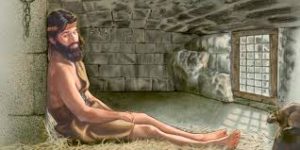
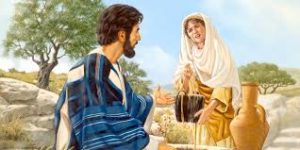
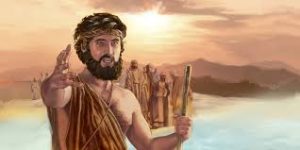
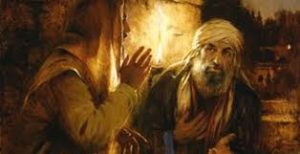

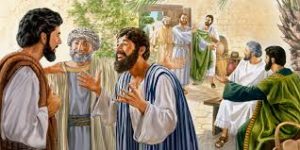
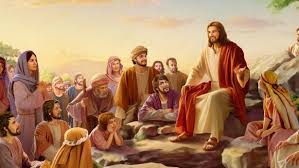
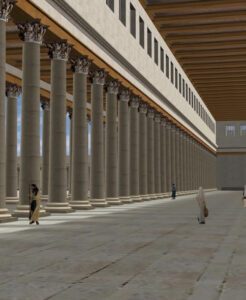 With this knowledge it is easy to locate exactly where the cleansing of the Temple Mount took place. It was at the southern end, and in the most magnificent of all porticoes.
With this knowledge it is easy to locate exactly where the cleansing of the Temple Mount took place. It was at the southern end, and in the most magnificent of all porticoes.